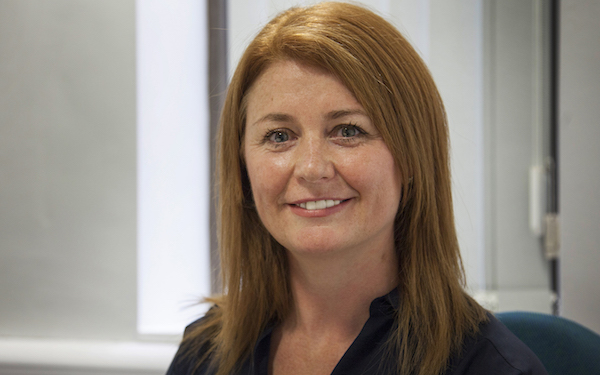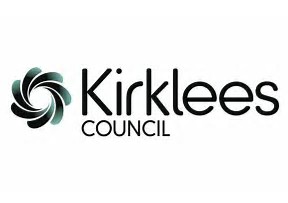Number 11 did not exist eight weeks ago. Eight weeks ago this facility for looked-after young people and care leavers was just a kernel of an idea from the social workers in Kirklees Council’s looked-after children’s service.
Today, it is ready for young people to use and it has become a clear statement of Kirklees’ determination to move on – and emerge stronger – from a difficult year. The last few months have been marked by critical Ofsted reports and industrial action, but the West Yorkshire authority is strongly focused on delivering quality social work for children, young people and families.
Number 11 is a place where young people can meet with their social workers, but it also provides them with plenty of handy facilities, from showers and a laundry to computer facilities and a kitchen where they can learn to cook. While children’s services are based in the same building, Number 11 has its own entrance. And what happens there is developed in conjunction with the young people, putting their voice at the heart of services.
A child-focused council
“We’ve put children much more at the heart of the organisation and all service areas are now focused on what they can do to support children and young people. Number 11 is a real example of that,” says Jacqui Gedman, who became the council’s chief executive in February.
“The old register office in Huddersfield was not in use and children’s services had raised concerns that the environment where looked-after children were accessing social workers was unsuitable. Our buildings and assets team just made it happen. They had one or two conversations with the social workers and then went off and produced in six weeks what is an amazing facility.”
That Number 11 symbolises Kirklees’ new spirit of improvement is backed up by Steve Walker, the director of children’s services for Kirklees and also Leeds City Council. And he should know whether a council has what it takes to make real improvements. He and his team have not only overseen Leeds’ transition to good but helped several other authorities enhance their children’s social work services, including Manchester and Sunderland councils.
Strong foundations for change
“The first thing that is very important for improvement is that there is clear and demonstrable support for children’s services from both elected members of all parties and from the corporate centre. Kirklees has that,” says Steve, who added Kirklees to his remit in June.
“Kirklees also has really good partner organisations who see improving outcomes for children as a shared responsibility. Since arriving here I’ve found – and this is commented on in the Ofsted reports too – that practitioners in Kirklees have a very clear focus on the child. It’s very important all these things are here and Number 11 is a very good example of how all those foundations come together.”
The child-centred culture of the service’s social workers is a real boon, he says: “Very often what you find in authorities when things go wrong is that there is a focus on process rather than on the children and outcomes for children, but Kirklees is very focused on child-centred practice. Some work needs to be done to put in the processes and support the practitioners but we are working from a good base.”
Manageable caseloads, quality supervision

Steve is working to have that support in place fast. “As director of children’s services I don’t deliver good outcomes for children – frontline practitioners do,” he says.
“My role is to make sure frontline practitioners and managers have everything they need to deliver good outcomes: manageable caseloads; regular and good quality supervision; a good environment; and a clear career structure supported by training and development. We have only been here since June but we hope to have those things in place by the end of the year.”
Other improvements are also underway, according to Jacqui, not least investment in IT to make the system better for social workers and to enable mobile working using tablet devices.
“We’ve got about 50 social workers trialling mobile and agile working at the moment and we’ve had really positive feedback from that,” she says. “It’s part of what we’re doing to ensure the environment for social workers at Kirklees goes with the grain and makes it easier for them to do their job.”
A real opportunity
The council’s disputes with social workers and their unions are an added challenge to the improvement journey, but its chief executive says she shares the union members’ frustration with the pace of change.
“We completely understand their frustration with some of the issues we are grappling with,” she says. “These are issues they raised previously that were not responded to appropriately so I have a lot of sympathy. These are issues we cannot put right overnight, but I think our social workers are now seeing the changes happening and improvements starting to take hold.”
Jacqui is confident enough that her goal is to make Kirklees worthy of being council of the year by 2020: “It’s been a really difficult few years for Kirklees but despite all of that we are doing some fabulous things here. If we can connect it all I am certain we can do that. I wouldn’t say it unless I genuinely felt it was achievable.”
Steve agrees that this is no pie-in-the-sky ambition. “It’s very realistic,” he says. “A lot of the conditions within children’s social care here are ripe for things to take off. It’s got strong foundations. The potential is there.
“I think that’s what makes Kirklees a real opportunity for social workers who want be involved in developing a top-quality service. Kirklees will be somewhere where social workers can do good practice – we will give you all the support you need to deliver good outcomes for children, young people and families.”






 Facebook
Facebook X
X LinkedIn
LinkedIn Instagram
Instagram